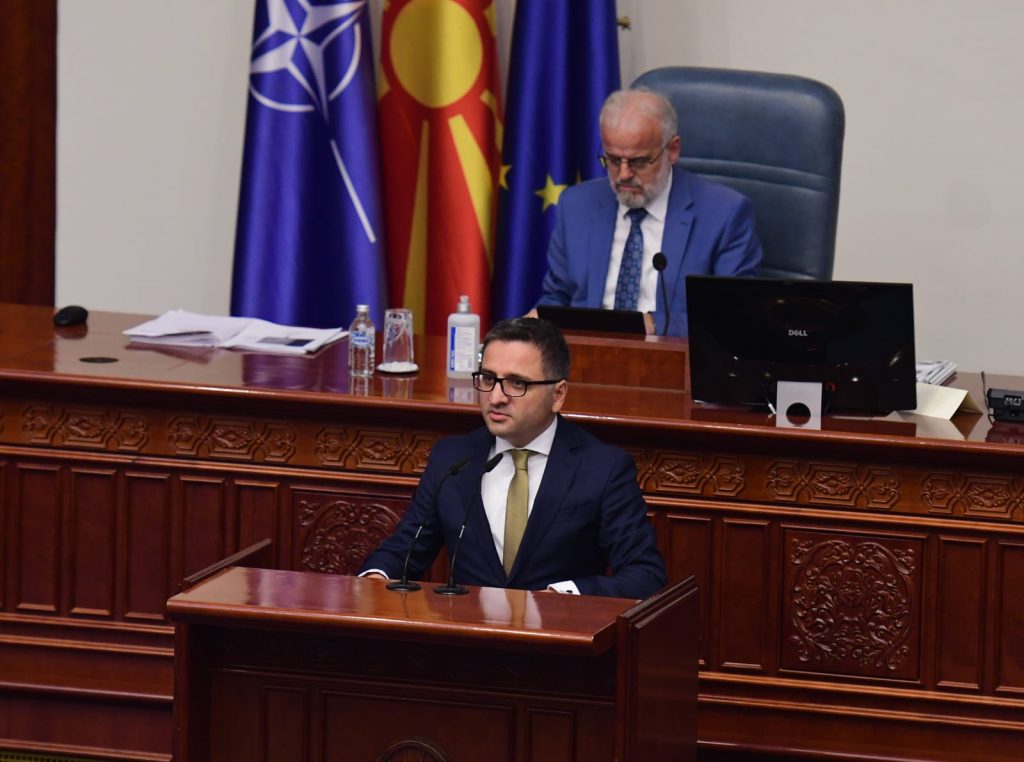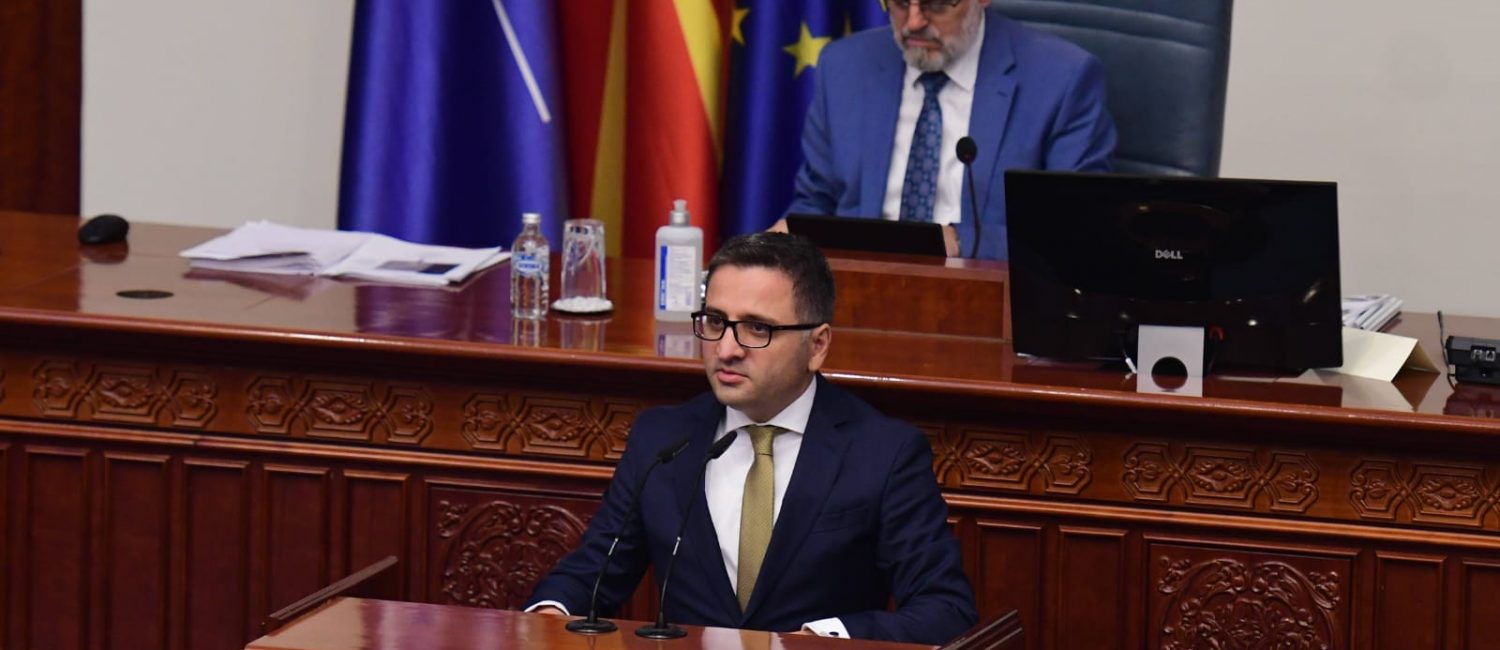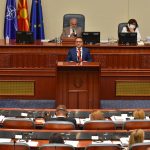11th July 2022, Skopje – By supporting the Supplementary Budget support is also provided for increase of pensions, additional funds for vulnerable categories, funds for companies’ wage increase subsidies, additional funds for the farmers for higher yields and food price stabilization, as well as funds for new anti-crisis measures to protect both the living standard of the citizens and the economy from the shocks caused by the ongoing price crisis, Minister of Finance, Fatmir Besimi, pointed out in his exposé on the Supplementary Budget, debated today at the Parliament plenary session.

“The draft Supplementary Budget provides for achieving two important goals: first, maintenance of macroeconomic stability, which is essential for further growth and development of each economy and second, support to the economy on its getting back to the pre-pandemic trajectory, as well as preserving social security for our citizens”, Besimi underlined.
Under the draft Supplementary Budget, total revenues in 2022 are projected in the amount of Denar 245.8 billion, being by around Denar 6.9 billion higher compared to the initial projections, while total expenditures are projected in the amount of Denar 288.5 billion, being by around Denar 16 billion more in relation to the initial 2022 projections.
Upward revision by Denar 19 billion is projected for the current transfers under the Supplementary Budget. This amount includes funds for the anti-crisis measures, as well as other measures aimed at targeted support for overcoming the crisis.
“If the first set of measures was broad, aimed at slowing down the inflation spiral, the upcoming measures will be aimed at specific target groups most affected by the crisis, which could not cope with these effects without these measures in place. This is actually what the international financial institutions, such as IMF and the World Bank, as well as the European Union, have recommended – measures to respond to the needs of the target groups”, Minister Besimi said.
Additional financial support is projected in the amount of Denar 4.7 billion geared towards protecting the living standard of the citizens, as well as the companies’ liquidity amid protracted crisis on the global energy and commodities market. Additional subsidies and transfers for the farmers are also projected, i.e. Denar 3.2 billion added to the initially projected subsidies, in order to stimulate generation of yields and increase productivity, cushion the price pressures on commodities. Higher transfers to municipalities are also projected, above all as a result of the increased block grants pertaining to the increased wages by 15% for the staff in kindergartens and primary and secondary schools.
Supplementary Budget also envisages funds for increase of pensions in line with the new pension calculation methodology, according to which the pension indexation is carried out as per the CPI trends, accounting for 50%, and the increase in the average wage paid to all employees, accounting for 50%. Funds are also envisaged for wage increase subsidies for the employees in the private sector, including the effect from subsidizing the minimum wage contributions. Additional Denar 2.4 billion is projected for the beneficiaries of the right to guaranteed minimum assistance.
Capital projects the pace of implementation of which is slowed down, in particular capital projects financed under loans, have undergone downward revision. Still, capital investments remain at record high this year, i.e. being by Denar 8.8. billion or by 37.8% more compared to the previous year and by Denar 16.1 billion, or twice higher, compared to 2020.
Budget deficit is projected at Denar 42.7 billion, i.e. accounting for 5.3% of GDP, being lower compared to 2021.
“2023-2027 Fiscal Strategy envisages gradual fiscal consolidation, with the budget deficit reduced as a percentage share of GDP as follows: 4.2% in 2023, 3.6% in 2024, 3.2% in 2025, 3.0% in 2026 and 2.8% in 2027. In the medium term, despite the present risks and uncertainty, fiscal policy will remain focused on further consolidation and restructuring of public expenditures, coupled with gradual reduction of the budget deficit and the public debt, boosting the economic activity through capital expenditures and infrastructure investments, as well as improving the doing business environment and job creation”, Minister Besimi underlined.
















